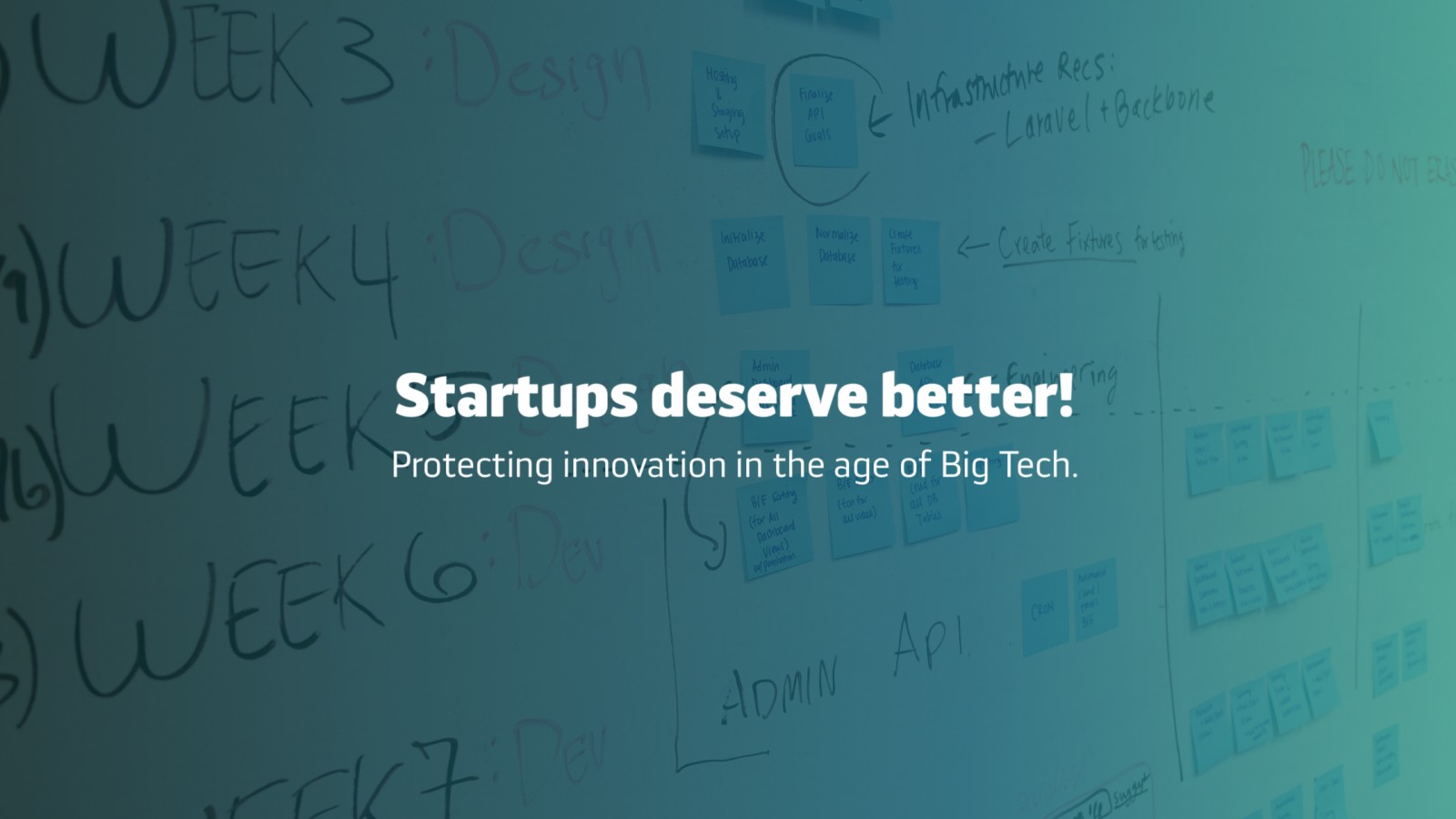
What's the secret ingredient of innovation? Some say it's the idea, some claim it's the execution; others stick to the zeitgeist or the team spirit. One thing is clear - if true innovation in business is as rare as a unicorn, it should rather be nurtured and protected than handed away on a silver platter to 3rd party companies.

"So... How do we do this?"
It's probably what most of us are asking ourselves every morning this year, struggling to get through yet another day at the home office. Beginnings are a challenge, perhaps now more than ever - especially if you're starting out fresh as an emerging company.
As far as the morning routine, we can always count on certain automatisms to get us through. Unfortunately, the same state of impaired consciousness seems to influence major business decisions, as well - including the ones related to choosing your work tools.
No worries, I'm not planning to discuss project management methodologies and business tips here. There's a ton of scientific research on this, plus just as many content marketing pieces, presenting all the pros and cons of each approach. It's not my role here to foster the startup newbies on their way towards becoming the unicorn.
I want to stay in the moment and reflect on what's behind this subconscious decision making and why it still results in such (poor) choices.
As statistics and common experience suggest, the majority of startup teams tend to choose freemium plans of most popular productivity tools - from extensive, sophisticated software solutions, like Jira, to much more simple task management platforms (Trello, Asana) or chat apps (Slack). Some stick to old habits and keep using WhatsApp or Messenger to stay in touch on a daily basis and Google for all the rest - emails, file storage, calendars and all. And that's ok, but... What about the privacy of their data?
It's not my intention to scare you here with visions of data breaches and cyber attacks, though it's real and does happen to a lot of companies nowadays.
Don't get me wrong - not all startups are developing unique, groundbreaking products destined to change the course of history and not all are therefore the target of deliberate cyberattacks. However, they all create a lot of original, human ideas, producing gigabytes of data, containing sketches, drafts, documents, excel sheets, reports, messages, video calls and so much more! To be more exact - it was around 75 500 Chat Messages, 9 300 Files + Folders, 7 200 Tasks + Comments, 900 Video Calls for our own team of 13 people within last year. All of what makes each project a truly unique experience, based on interaction, collaboration and feedback. The raw material of innovation. Priceless.
Then why is it sold so cheap? Why do teams give it all away so easily and thoughtlessly, with no concern over who's looking at the data and what it's being used for? What's the cost of such automatism?
Just like our personal data is used by social media to develop sophisticated algorithms and feed advertising engines, all of the information produced by the most creative entrepreneurs and stored in these first-choice apps, are open to processing by many third parties. It's constantly being analyzed, subjected to machine learning, nourishing algorithms and various types of AI.
That's the price we pay on a daily basis for using tools with poor privacy policies. As in the ugly social media model, the deal between the user and such companies is seemingly transparent.
Do you ever wonder what Google is working on right now, apart from developing Google Assistant to help you with corporate Workspace accounts? Have you ever considered what happens to all your messages stored in any of the free chat apps - what kind of AI is it feeding and how it will affect our lives in the future?
We all know the obvious - our personal data is the currency, and we can trade it. But why do we keep selling it so cheap, if there are more and more possibilities to get a balanced, beneficial deal? As far as precious human innovation is involved, the prices should rather be going up, don't you think?
This may not seem especially helpful in terms of pressing KPIs and OKRs, I know. But I challenge you, the representatives of the fortunate few per cent of the human race - all you innovators, great thinkers, inventors and genius entrepreneurs - don't sell yourselves cheap. Don't lean on your habits and automatisms. Think ahead and protect your data - your most valuable asset.
As always, we're looking forward to getting your feedback! We'd love to know what you think of such an approach - feel free to engage with us on Twitter and LinkedIn.
Best!
 Kasia Toczko
Kasia Toczko